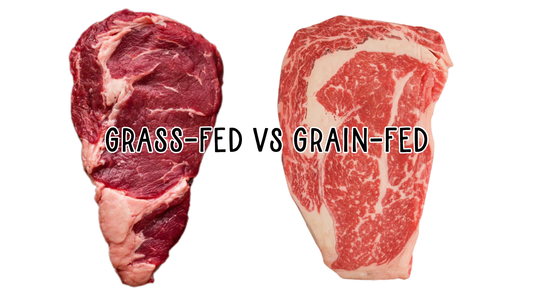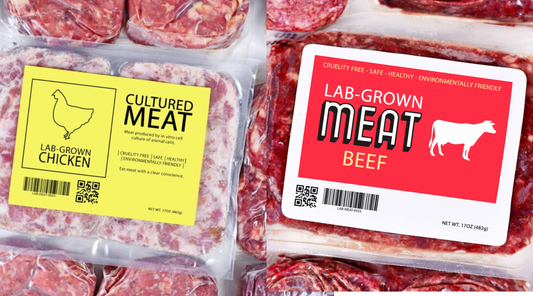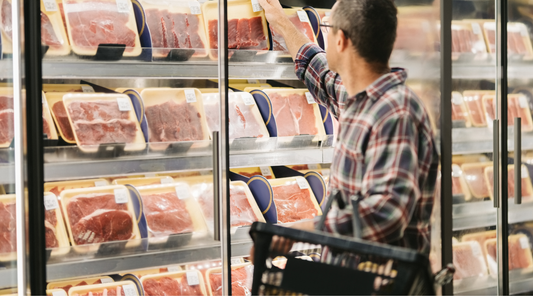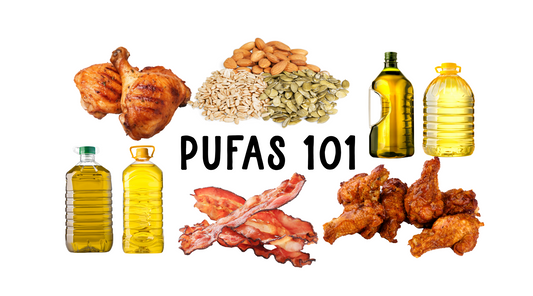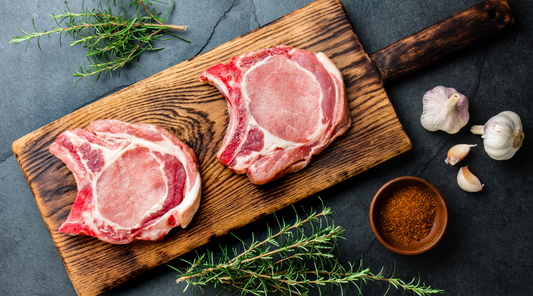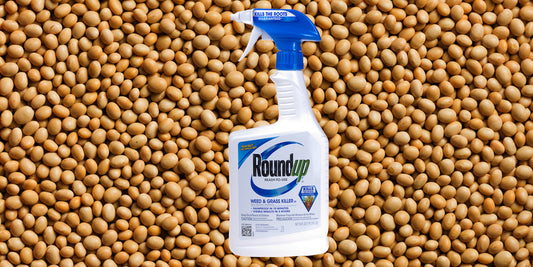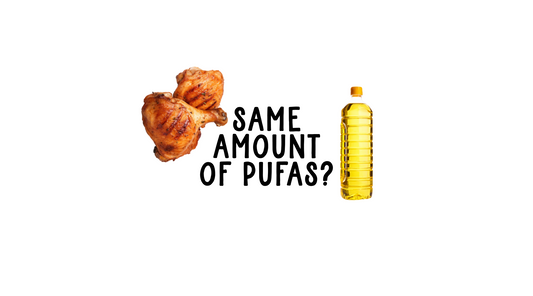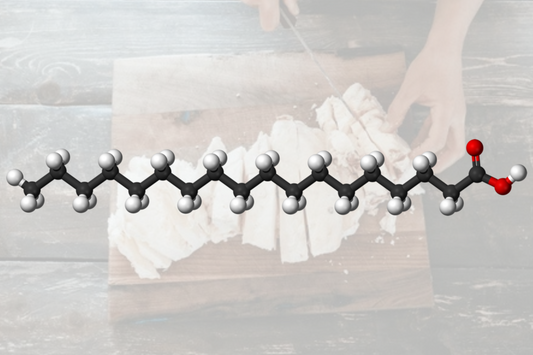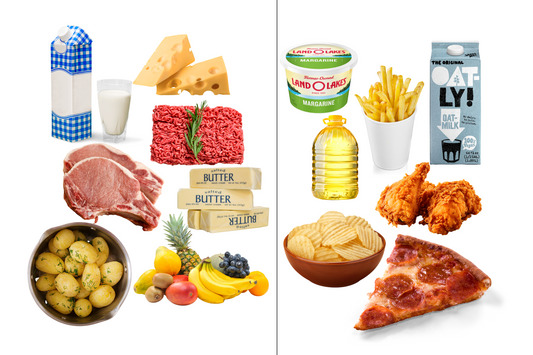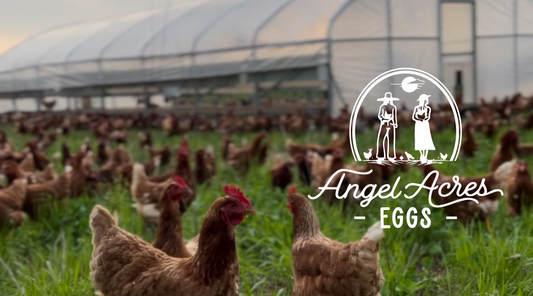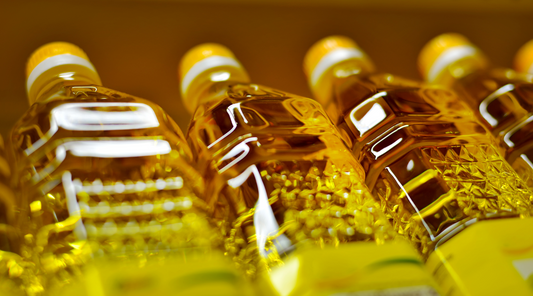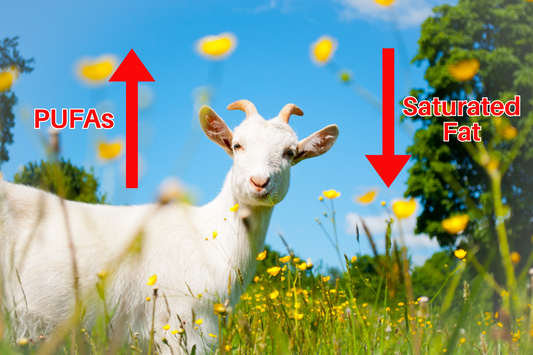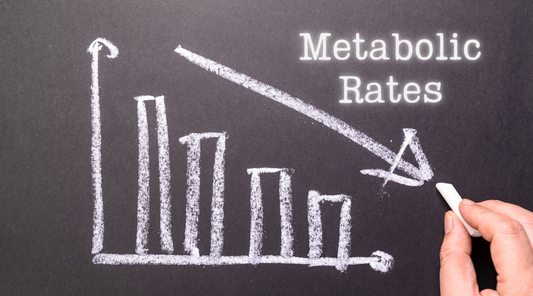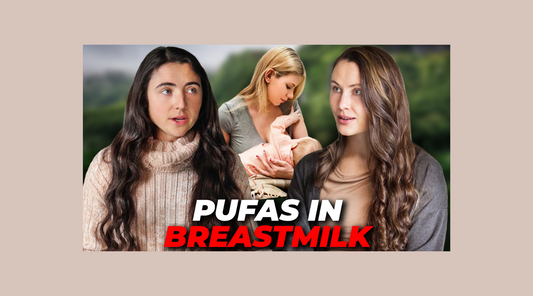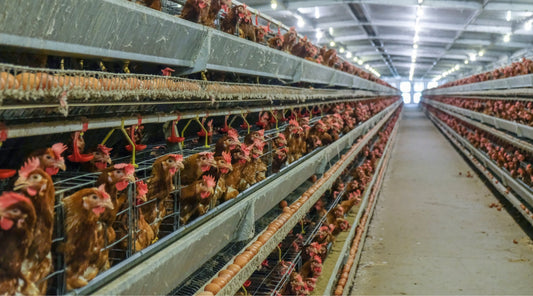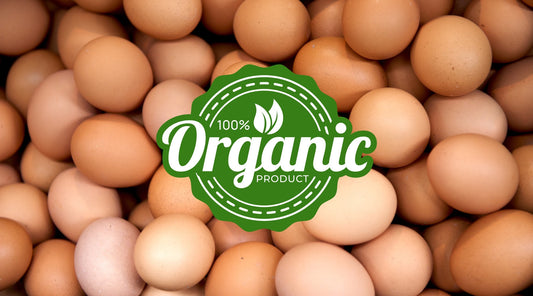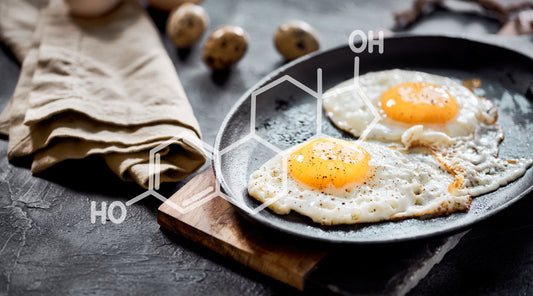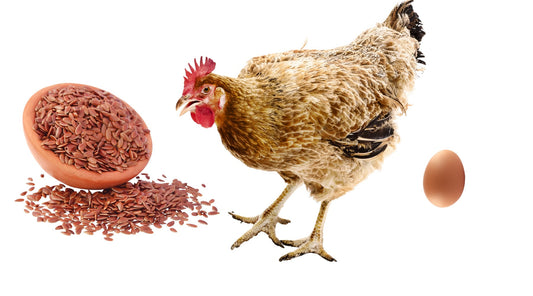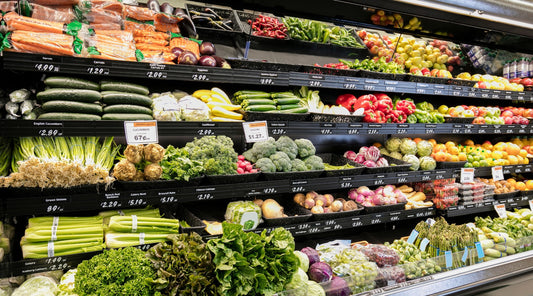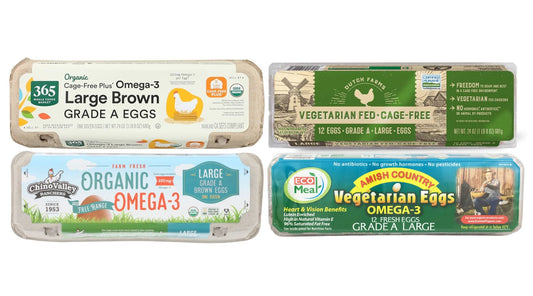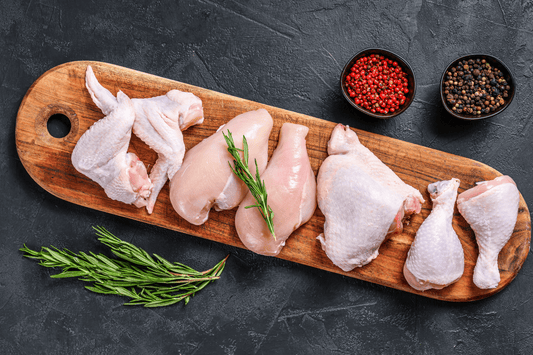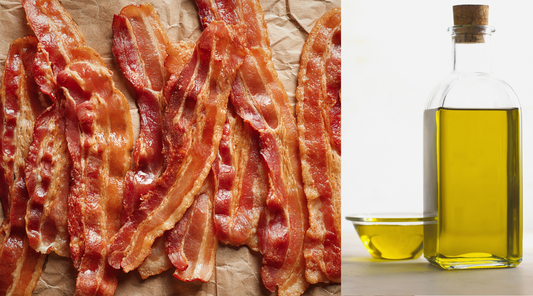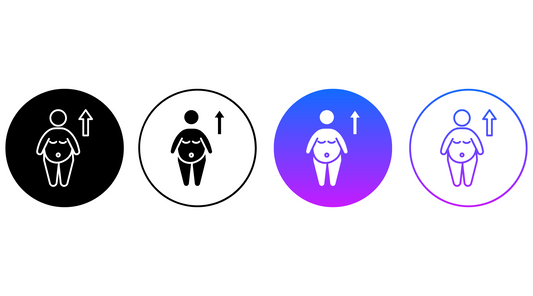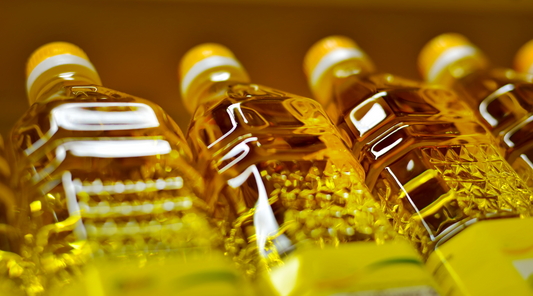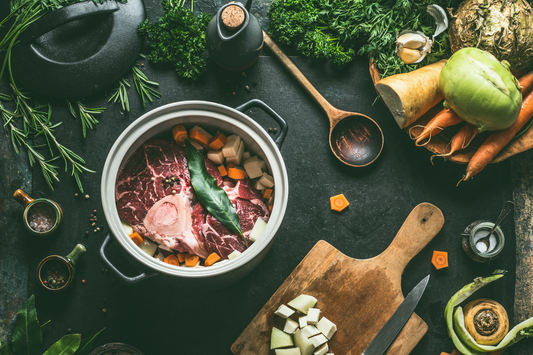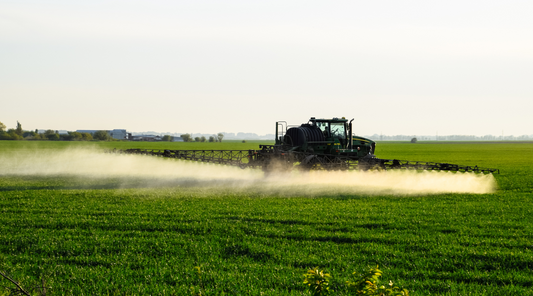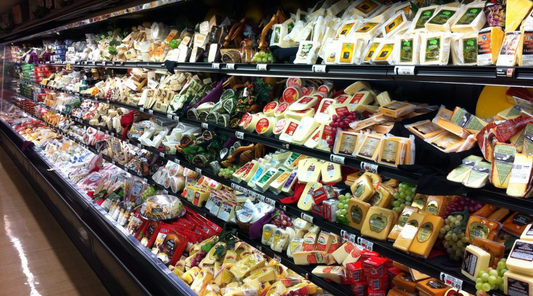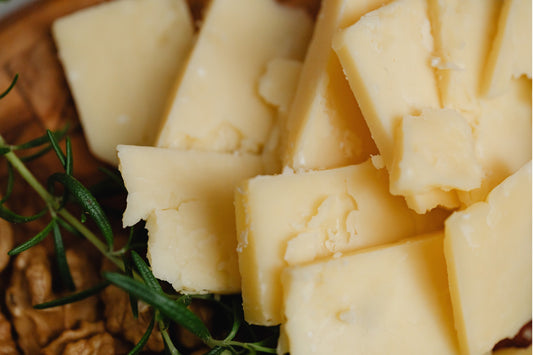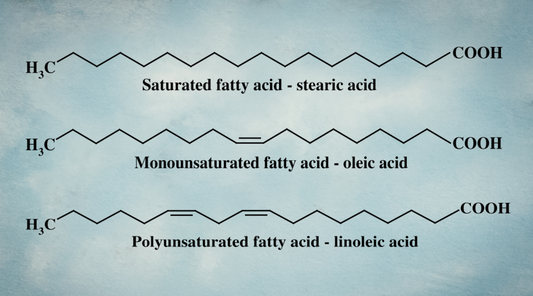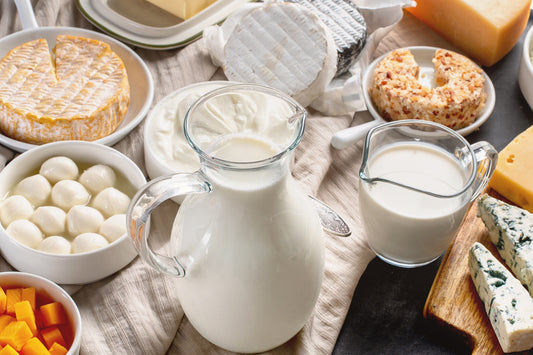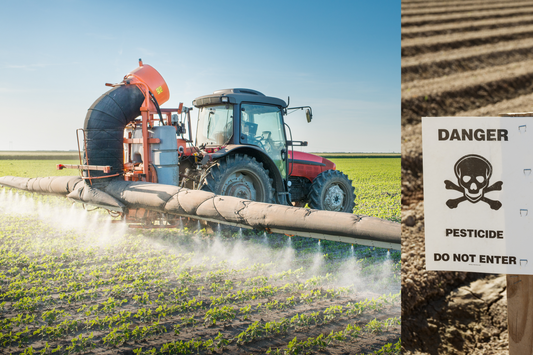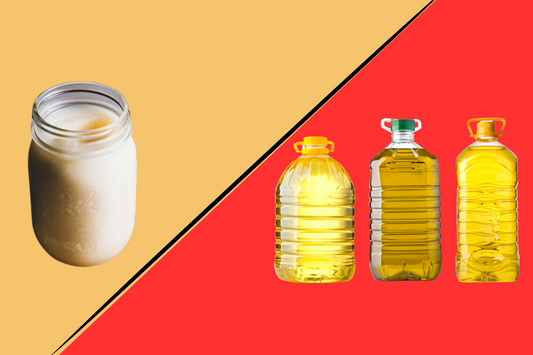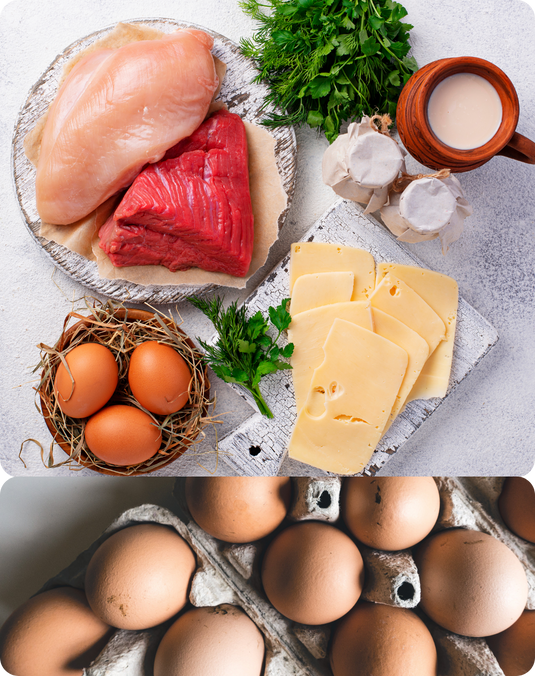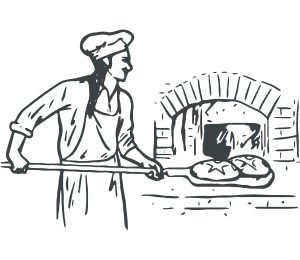
Grains, Glyphosate, and Your Gut: The Hidden Dangers Lurking in Your Food
In an era where health consciousness is at an all-time high, many of us have become increasingly vigilant about the food we consume. We scrutinize labels, opt for organic produce when possible, and make concerted efforts to avoid processed foods.
However, there's a critical aspect of our food system that often flies under the radar…the production and processing of grains.
While many of us strive to make healthier choices, financial constraints often limit our ability to consistently purchase organic produce. (Check out the Environmental Working Group (EWG) ‘Clean 15’, the 15 produce items that had the lowest levels of pesticide residues, here).
However, when it comes to grains and grain legumes (wheat, oats, chickpeas, & more), the stakes are significantly higher.
This overlooked component of our diet may be harboring more dangers than we realize, particularly when it comes to the use of pesticides and herbicides.
Unbeknownst to many consumers, numerous grains are heavily sprayed with toxic pesticides just before harvest, making the sourcing of organic grains, or at least knowing their origin, crucial for our health.
The Non-GMO Misconception
It's important to note that organic agriculture isn't without its flaws. While it generally involves fewer synthetic chemicals, some are still permitted. Moreover, organic farming often relies on tillage, a practice that involves mechanically manipulating the soil through plowing or cultivation. This process can be detrimental to soil health, degrading its structure, increasing erosion, and disrupting vital microbial populations.
A common misconception, however, is that "Non-GMO" labeling equates to chemical-free farming.
In reality, this label merely indicates that the crops haven't been genetically modified. It says nothing about the use of pesticides or herbicides during the growing process. This misunderstanding often leads consumers to believe they're making a healthier choice when, in fact, they may still be exposing themselves to harmful chemicals.
While many people are aware that glyphosate and other toxic herbicides are used to control weeds, fewer realize that these chemicals are also employed as drying agents in some non-organic farming operations – leading to higher levels of glyphosate in non-organic products made from oats, wheat and other grains.1
This practice, known as desiccation, involves spraying crops with glyphosate 1-2 weeks before harvest to accelerate the drying process, allowing farmers to harvest sooner.2
It's like giving crops a chemical spa day, except instead of coming out relaxed and rejuvenated, it comes out dead and potentially carcinogenic. Fancy!
The use of glyphosate as a pre-harvest desiccant has seen a dramatic increase in recent years. For example, even though wheat is not a GMO crop, glyphosate use on wheat has skyrocketed by 400% in the past two decades.3
This trend isn't limited to wheat; it extends to a wide range of grains and legumes, including barley, oats, corn, soy, chickpeas, and more.
The practice of using glyphosate for crop desiccation can be traced back to Scotland in the 1980s. According to Charles Benbrook, Ph.D., farmers there struggled with uneven drying of wheat and barley crops. To solve this problem, they began using glyphosate to kill the crops shortly before harvest, accelerating the drying process.
And thus, the practice of spraying glyphosate on crops before harvest was born, soon spreading to other regions and crops.
The use of glyphosate as a pre-harvest desiccant leaves chemical residues that are then processed into our food, significantly increasing our dietary exposure.4
While this practice isn't universal, it's particularly common in regions with short growing seasons and wetter harvests.
The Alarming Findings
Recent studies have revealed shocking levels of glyphosate in various grain products.5 The EWG conducted tests on popular breakfast cereals and snacks, finding significant amounts of glyphosate in many samples. The highest level was detected in Quaker Oatmeal Squares Honey Nut, which contained 2,837 parts per billion (ppb) of glyphosate – nearly 18 times the EWG's benchmark.
Even more concerning, a study from March of this year6 tested 46 samples of organic and non-organic gluten-free products for glyphosate and other pesticides.
The results were alarming: 44 out of 46 samples tested positive for glyphosate. The highest level was found in Banza Chickpea Pasta, at a staggering 2,693 parts per million (ppm), the highest amount ever recorded in human food by the lab conducting the study! (Also, some of the foods labeled as gluten-free in this study were found to contain gluten.)

While glyphosate has been the focus of much research and public concern, it's not the only chemical we should be worried about. The same study from March of this year that
found high levels of glyphosate also identified 2,4-D, a component of Agent Orange, as the most prevalent pesticide in the samples. Products like King Arthur's Gluten Free Flour and Milton's Sea Salt Crackers were found to have the highest levels of pesticides.
Decimation of our Guts
The health consequences of glyphosate exposure are becoming increasingly clear, with one of the most significant concerns being its impact on our gut microbiome.7
The suffix "-cide" in "herbicide" (and other similar terms like pesticide, fungicide, etc.) comes from the Latin word "caedere," which means "to kill" or "to cut down." Therefore, in the context of herbicide, "cide" indicates that the substance is designed to kill.
Glyphosate is designed to kill weeds and microorganisms in the soil, but our digestive systems contain trillions of microorganisms!
Studies have shown that glyphosate can hinder the growth of beneficial gut bacteria while promoting the growth of pathogenic bacteria, leading to dysbiosis.8
"Glyphosate residues on food could cause dysbiosis, given that opportunistic pathogens are more resistant to glyphosate compared to commensal bacteria."9
The Human Microbiome Project found that 732 out of 941 bacteria species in our gut have at least one copy of the gene that glyphosate targets. This means that 55% of our gut bacteria are sensitive to glyphosate, 38% are resistant, and 7% are unclassified.10 The potential for glyphosate to disrupt our gut health is, therefore, significant and concerning!
Regulatory Shortcomings
But don't worry, folks. The Environmental Protection Agency (EPA) has got our backs.
They've set the acceptable daily intake of glyphosate in our drinking water at a level that's only... checks notes... 7,000 times higher than the European standard. Because nothing says "We care about public health" quite like allowing a generous helping of herbicide.
For food, the EPA in the United States has set the Acceptable Daily Intake (ADI) for glyphosate at 1.75 mg/kg body weight/day, which is significantly higher than the standards in Europe (0.5 mg/kg) and Canada (0.3 mg/kg).11 Even more alarming is that
these standards only consider direct glyphosate toxicity, completely overlooking its potential impact on gut health.
Adding to the complexity of the issue is what researchers call the "cocktail effect." While glyphosate is the active ingredient in many herbicides, crops are often treated with a mixture of agrochemicals. The synergistic effects of these chemical combinations are largely unknown and unstudied, particularly concerning their impact on the gut microbiome. This gap in our understanding poses significant risks to human health!
Another often-overlooked aspect of pesticide exposure is the cumulative effect. Even if individual foods contain 'safe' levels of pesticides relative to the EPAs standards, regular consumption of multiple foods with residues can lead to a significant total exposure over time.
This cumulative effect is rarely considered in regulatory decisions or public health guidelines.
“While glyphosate is the active ingredient, food crops are desiccated with GBH, which contain compounds in addition to glyphosate. Complicating matters further is the fact that most GBH are proprietary and their ingredients and the relative percentages are unknown. This ambiguity poses a significant challenge for researchers as they do not know what they’re working with, the amount present and the synergistic effects of these chemicals when combined. Additionally, crops are often treated with a proverbial ‘cocktail’ of agrochemicals, including other herbicides, in addition to glyphosate and GBH. The cytotoxic effects of glyphosate appear to increase when combined with other herbicides, including Paraquat…This synergistic phenomenon suggests that relatively low glyphosate residues within our food supply could have serious consequences when combined with other commonly used agrochemicals.”12
As awareness of glyphosate's potential harm grows, some farmers are turning to alternative chemicals like Dicamba. However, this shift doesn't necessarily represent an improvement in terms of health or environmental impact. It merely replaces one potentially harmful chemical with another, perpetuating a cycle of chemical dependency in agriculture.
It's crucial to understand that the widespread use of toxic chemicals in farming is not the fault of individual farmers, but rather a result of the broken agricultural system shaped by government policies and industry influences over decades. Farmers often find themselves caught in a challenging situation, pressured by economic realities, market demands, and agricultural policies that have long favored high-yield, chemically intensive farming practices.
The current system, largely shaped by government subsidies, research funding priorities, and regulatory frameworks, has created an environment where conventional,
chemical-dependent farming is often the most economically viable option for many farmers.
Additionally, years of specialized education and industry messaging (and propaganda) have reinforced these practices, making it difficult for farmers to transition to alternative methods without significant support and systemic change. Many farmers are simply trying to survive in a system that wasn't designed with long-term environmental and health consequences in mind.
The Way Forward
The prevalence of glyphosate in our food system is alarming, with the chemical even being detected in women's breast milk13, indicating its ability to bio-accumulate in the human body.
But we can reduce our exposure significantly by paying attention to where our food comes from (ESPECIALLY when it comes to grains). And the research now supports that reducing consumption of foods high in glyphosate can lead to significant health improvements.
A review conducted by the University of Washington found that agricultural workers who used glyphosate extensively were 41% more likely to develop non-Hodgkin's lymphoma during their lifetime compared to those who used it infrequently or not at all.14
Furthermore, a major study published in JAMA Internal Medicine revealed a significant reduction in cancer risk for individuals who consumed a diet rich in organic food.15
Conclusion
While sourcing organic produce isn’t always feasible, it's crucial for consumers to be more aware of where their grains (wheat, oats, corn, rice, barley, chickpeas, etc.) or grain by-products (bread, baked-goods, cereal, crackers, etc.) come from. Just as many people advocate knowing your meat's origin, the same principle should apply to grains and cereal crops.
It’s important to further emphasize that simply eliminating soy or wheat from one's diet and choosing ‘gluten-free’ doesn't guarantee the elimination of glyphosate exposure, as many other non-organic crops are desiccated before harvest.
For example, if you were regularly buying the Banza Chickpea pasta because you thought it was a healthier gluten-free option, you were unknowingly significantly increasing your glyphosate exposure.
Now, I know we've covered a lot of ground here, and you might be feeling a bit overwhelmed. You might even be eyeing your morning toast with suspicion, wondering if it's plotting against you!
But remember, knowledge is power! And in this case, it's the power to make better choices about what you put in your body.
This will not be a ‘top-down’ effort, as the government does not put public health first.
Instead, change will be from the ‘bottom-up’ through consumer demand. Since public health is secondary to corporate interests, it is on us as consumers to educate ourselves about these issues, ask questions, and make informed choices about the foods we consume.
Organic is the better option relative to non-GMO for grains. However, the ideal solution would be sourcing from regenerative farms, although these can be harder to find.
Regenerative grain production involves minimal or zero chemical use and instead focuses on building soil health to produce healthy crops. This approach not only reduces chemical exposure but also improves soil health since tillage is not employed.
Supporting organic and regenerative farming practices and demanding transparency in food production from farmers, cooperatives, and food companies are crucial steps towards a healthier food system. It really is on us!
In the end, the question isn't always just about what we eat, but about how our food is produced. By paying attention to these often-overlooked aspects of our food system, we can take control of our health and contribute to a more sustainable future for agriculture.
You can make a difference by supporting organic and regenerative farmers. Think of it as voting with your fork (or spoon). Every time you choose an organic grain product, you're essentially voting against the chemical-based conventional farming system.
Nourish is on a mission to change the food system to produce the highest quality food possible (free of chemicals).
We not only have regenerative livestock farm partners, but we also have regenerative row crop farm partners, so that we can support regenerative agriculture and soil health AND have a say in every step of our food production, from seed to fork.
Our regenerative row crop farm partners that not only produce the heritage wheat for our sourdough products and flour, but also feed ingredients for all of our livestock (chickens, dairy goats, and hogs). Thus, bridging the gap between livestock and row crop regenerative farming.
Recent laboratory testing has confirmed that Angel Acres eggs are completely free of glyphosate! This achievement reflects a commitment to quality and a unique partnership with row crop farmers who practice regenerative agriculture practices to produce the low PUFA chicken feed ingredients and do not use agrochemicals.






